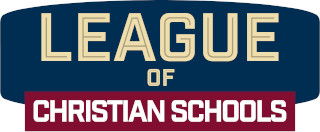In August, the US DoE walked back on the below issue. The Department of Education regulations state that it is not necessary to file for the assurance of the exemption, and in fact, if there is a claim involving Title IX, the religious school can request the assurance at the time of the claim or investigation. There does not seem to be any requirement to pre-file.
The Biden administration is requiring schools to comply with its LGBT policies or lose federal funding for school lunches. This is not a new policy, but an enforcement of a gender rule created in 2015.
The U.S. Department of Agriculture’s Food and Nutrition Service announced in May it will prevent low-income students from participating in its National School Lunch Program if their school does not adopt the administration’s interpretation of Title IX, which holds that the federal civil rights law’s provision against discrimination based on sex includes designations of sexual orientation and gender identity.
The Biden administration will also force schools that receive funds from FNS to investigate accusations of sexual orientation and gender identity discrimination. Students at colleges and universities who reject the Biden administration’s definition of sex could also lose their Federal Student Aid.
How Does a School Protect Its Religious Position?
According to the FNS website:
“The Food and Nutrition Service (FNS) recognizes religious exemptions granted by the Department of Education (ED) without prior express approval. ED guidelines allow school and school-based sites to apply for an exemption when Federal law prohibiting gender separation is inconsistent with the institution’s religious tenets. These exemptions apply broadly to operations, including the meal service at a given site, such as a faith-based school.”
This exemption is referring to the Title IX exemption provided in federal law.
How Does a School Apply for the Title IX Exemption?
According to the US Department of Education website:
“Title IX does not apply to an educational institution that is controlled by a religious organization to the extent that application of Title IX would be inconsistent with the religious tenets of the organization. 20 U.S.C. § 1681(a)(3); 34 C.F.R. § 106.12(a).”
This is the reason that LCS has always supported the framework that a school operate as a ministry of a church. This is the only real federal protection of religion in the US.
How can a religious school get assurance from OCR that it is exempt from certain provisions of Title IX?
The Department’s Title IX regulations provide that, if an educational institution wishes to claim an exemption, the highest ranking official of the institution submit a written statement to the Assistant Secretary for Civil Rights, identifying the provisions of Title IX that conflict with a specific tenet of the religious organization. A claim for a religious exemption may be mailed to the Assistant Secretary for Civil Rights at 400 Maryland Ave., SW, Washington, DC 20202, or emailed to OCR@ed.gov. See 34 C.F.R. § 106.12(b).
Is a religious school required to submit a written statement to OCR in advance of claiming a religious exemption?
No. The regulation does not require that a recipient institution submit a written claim of exemption. Primarily, the written claim or “request” for exemption from an institution is a request for assurance from OCR of exemptions to certain sections of the regulation. Religious institutions that have neither sought nor received prior written assurance from OCR may still invoke their exemption after OCR receives a Title IX complaint. See 34 C.F.R. § 106.12(b). For an earlier memo describing the same practice, see AAS Smith Memo (Oct. 1989).
How does OCR evaluate a written statement claiming a religious exemption?
In responding to a written statement claiming a religious exemption, OCR evaluates whether the statement complies with the regulatory requirement to identify the religious organization that controls the educational institution and specify the provisions of Title IX or its regulations that conflict with the tenets of the religious organization. See 34 C.F.R. § 106.12(c).
How does an educational institution establish that it is “controlled” by a religious organization?
Any of the following is sufficient to establish that an educational institution is controlled by a religious organization:
- That the educational institution is a school or department of divinity.
- That the educational institution requires its faculty, students, or employees to be members of, or otherwise engage in religious practices of, or espouse a personal belief in, the religion of the organization by which it claims to be controlled.
- That the educational institution, in its charter or catalog, or other official publication, contains an explicit statement that it is controlled by a religious organization or an organ thereof, or is committed to the doctrines or practices of a particular religion, and the members of its governing body are appointed by the controlling religious organization or an organ thereof, and it receives a significant amount of financial support from the controlling religious organization or an organ thereof.
- That the educational institution has a doctrinal statement or a statement of religious practices, along with a statement that members of the institution community must engage in the religious practices of, or espouse a personal belief in, the religion, its practices, or the doctrinal statement or statement of religious practices.
- That the educational institution has a published institutional mission that is approved by the governing body of an educational institution and that includes, refers to, or is predicated upon religious tenets, beliefs, or teachings.
- Other evidence sufficient to establish that an educational institution is controlled by a religious organization, pursuant to 20 U.S.C. 1681(a)(3). See 34 C.F.R. § 106.12(c).
OCR evaluates a religious exemption claim consistent with the requirements of the First Amendment to the U.S. Constitution and the Religious Freedom Restoration Act. See AS Singleton Memo (Feb. 1985).


